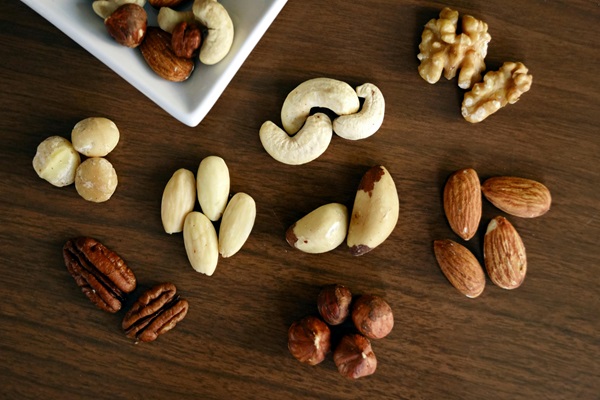In the pursuit of a healthier, more vibrant life, your choice of food plays a pivotal role. Consuming superfoods for super health, nutrient-rich foods can be your secret weapon to better health and well-being. But what exactly are nutrient-rich foods, and how can you incorporate them into your daily diet? This comprehensive guide is your gateway to understanding, selecting, and savoring the goodness of nature’s finest offerings.

I. Key Nutrients for Optimal Health
Before we delve into specific foods, it’s crucial to understand the essential nutrients that our bodies require. These can be broadly categorized into macronutrients and micronutrients.
Macro vs. Micro Nutrients
Macronutrients include carbohydrates, proteins, and fats. These are the building blocks of your diet, providing energy and supporting various bodily functions. Micronutrients, on the other hand, encompass vitamins and minerals, which are necessary in smaller quantities but are no less vital.
The Role of Vitamins and Minerals
Vitamins and minerals are like the conductors of a symphony within your body. They ensure that all the processes, from energy production to immune system functioning, run smoothly. Knowing which foods are rich in these micronutrients is the first step to improving your diet.
II. Incorporating Nutrient-Rich Foods
Transitioning to a nutrient-rich diet doesn’t mean a complete overhaul overnight. You can make gradual changes and embrace a balanced approach.
Gradual Dietary Changes
Start by incorporating one or two nutrient-rich foods at a time. Overhauling your diet too quickly can be overwhelming. Small, sustainable changes are more likely to become lasting habits.
Balanced Meal Planning
Balancing your meals is a key strategy. Ensure that every plate comprises a variety of nutrient-rich foods. This will help you meet your daily requirements for various nutrients.
III. Vegetables
Dark Leafy Greens
Kale, spinach, and Swiss chard are nutritional powerhouses. Packed with vitamins A, C, and K, and minerals like iron and calcium, these greens can fortify your health.
Colorful Vegetables
Carrots, bell peppers, and sweet potatoes are rich in antioxidants like beta-carotene. They support your immune system and promote healthy skin.
Cruciferous Vegetables
Broccoli, cauliflower, and Brussels sprouts contain cancer-fighting compounds and are excellent sources of fiber. They’re a must-have for a well-rounded diet.
IV. Fruits
Berries
Blueberries, strawberries, and blackberries are not only delicious but also rich in antioxidants, which help combat oxidative stress and support heart health.
Citrus Fruits
Oranges, grapefruits, and lemons are high in vitamin C, which boosts your immune system and aids in collagen production for healthy skin.
Tropical Fruits
Mangoes, papayas, and pineapples are packed with vitamins and minerals, offering a sweet and nutritious treat.
V. Protein Sources
Lean Meats
Chicken, turkey, and lean cuts of beef are excellent sources of protein and essential nutrients like iron and zinc.
Plant-Based Proteins
Lentils, beans, and tofu are perfect for vegetarians and vegans, offering protein, fiber, and a variety of vitamins and minerals.
Seafood
Salmon, mackerel, and sardines are rich in omega-3 fatty acids, which are essential for heart and brain health.
VI. Whole Grains
Benefits of Whole Grains
Whole grains like quinoa, brown rice, and oats are brimming with fiber and essential nutrients. They support digestive health and provide long-lasting energy.
Examples of Whole Grains
Consider incorporating whole grain products into your diet, such as whole grain bread, pasta, and cereal.
VII. Dairy and Dairy Alternatives
Nutrient-Rich Dairy Options
Greek yogurt and kefir are packed with probiotics and protein. They support gut health and provide calcium.
Non-Dairy Alternatives
Almond milk, soy milk, and coconut yogurt are excellent options for those with lactose intolerance or dairy allergies.

VIII. Nuts and Seeds
Nutrient-Dense Choices
Almonds, walnuts, and chia seeds are rich in healthy fats, fiber, and various vitamins and minerals.
Health Benefits
These small but mighty snacks can reduce the risk of heart disease and provide sustained energy.
IX. Oils and Fats
Healthy Cooking Oils
Olive oil and avocado oil are rich in monounsaturated fats, which are heart-healthy and perfect for cooking.
Essential Fatty Acids
Fatty fish, flaxseeds, and walnuts provide omega-3 and omega-6 fatty acids essential for brain and heart health.
X. Hydration and Fluid Intake
Importance of Water
Staying well-hydrated is fundamental for overall health. Water is involved in virtually every bodily function.
Herbal Teas and Hydration
Teas like green tea and chamomile not only hydrate but also offer various health benefits, from antioxidants to improved sleep.
XI. Supplements and Superfoods for Super Health
Exploring Superfoods
Discover the world of superfoods like acai berries, spirulina, and turmeric, which are packed with nutrients and health-boosting properties.
When Supplements Are Necessary
In some cases, supplements can fill nutritional gaps, but it’s important to consult a healthcare professional before starting any supplement regimen.
XII. Eating Mindfully
Slow, Mindful Eating
Chewing your food thoroughly and savoring each bite can improve digestion and help control portion sizes.
Portion Control
Understanding portion sizes is essential to avoid overeating, even when consuming nutrient-rich foods.
XIII. Food Preparation Tips
Cooking Methods
Opt for cooking methods like steaming and grilling to preserve the nutrients in your food.
Preserving Nutrients
Keep in mind that certain nutrients are sensitive to heat and light. Store your food properly to retain their goodness.
XIV. Special Diets and Allergies
Nutrient-Rich Options for Dietary Restrictions
If you have dietary restrictions, there are still plenty of nutrient-rich choices available. Explore gluten-free, vegan, and other specialized options.

XV. Eating Out and Travel
Smart Choices When Dining Out
When eating at restaurants, look for menu options that include nutrient-rich foods.
Nutrient-Rich Options While Traveling
Plan your travel snacks and meals with nutrient-rich foods to stay energized and nourished on the go.
XVI. Monitoring Your Nutrient Intake
Food Journals
Keeping a food diary can help you track your nutrient intake and make necessary adjustments to your diet.
Tracking Apps
There are numerous apps that can help you monitor your daily nutrient intake and set nutrition goals.
XVII. Common Myths and Misconceptions
Debunking Dietary Myths
Separate fact from fiction when it comes to popular diet myths. Science-backed information is your guide.
Understanding Food Labels
Learn how to read and interpret food labels accurately, so you can make informed choices at the grocery store.
XVIII. Health Benefits of Nutrient-Rich Eating
Improved Energy and Vitality
A diet rich in nutrients can lead to increased energy levels, making you feel more vibrant and alive.
Weight Management
Nutrient-dense foods can help regulate your appetite and support healthy weight management.
XIX. Potential Risks of Overconsumption
Vitamins and Minerals in Excess
While nutrients are essential, consuming them in excess can have adverse effects. Balance is key.
Balanced Intake
Aim for a well-rounded diet that provides all the nutrients your body needs in appropriate quantities.
XX. Nutrient-Rich Foods for Specific Health Goals
Heart Health
Discover foods that can promote heart health, such as oily fish, nuts, and whole grains.
Brain Health
Certain nutrients, like omega-3 fatty acids and antioxidants, can support brain health and cognitive function.
Bone Health
Calcium and vitamin D-rich foods are essential for maintaining strong and healthy bones.
XXI. Building Healthy Habits
Creating Sustainable Changes
Establishing long-term, healthy eating habits is the key to lasting well-being.
Seeking Professional Guidance
If you have specific health concerns or dietary needs, consulting a nutritionist or healthcare professional can provide personalized guidance.
XXII. Conclusion
Your journey towards a healthier, more vibrant life begins with the food you choose to eat. Nutrient-rich foods are your allies in this quest. By incorporating these foods into your daily diet and practicing mindful eating, you can enjoy better health, increased energy, and a heightened sense of well-being. Remember, small changes can lead to significant improvements in your health.




